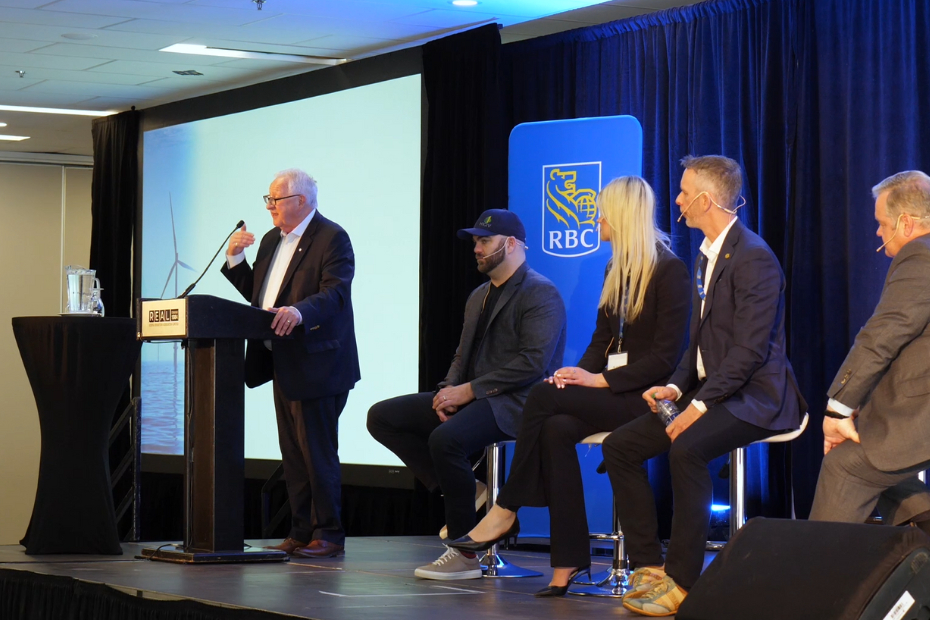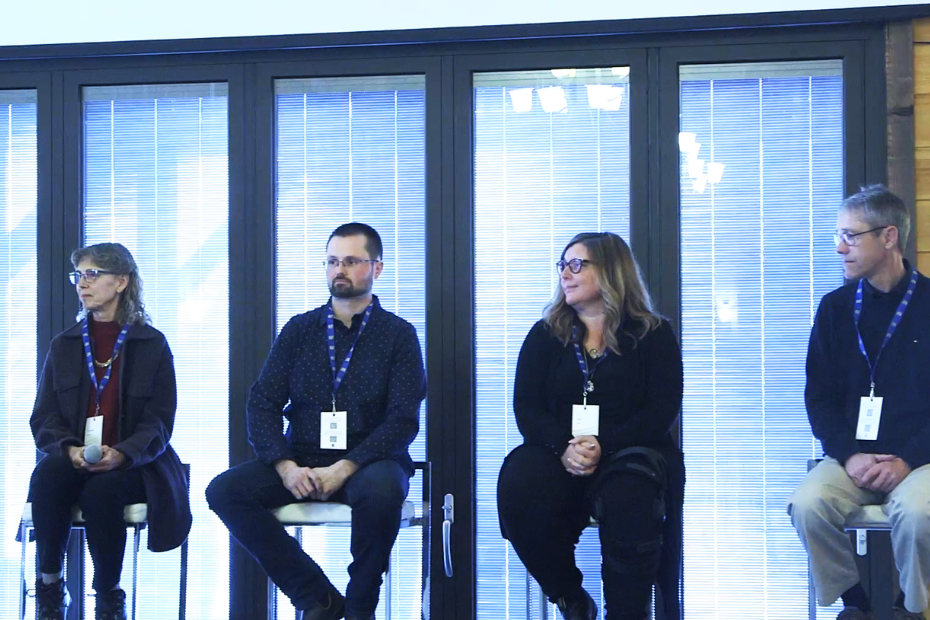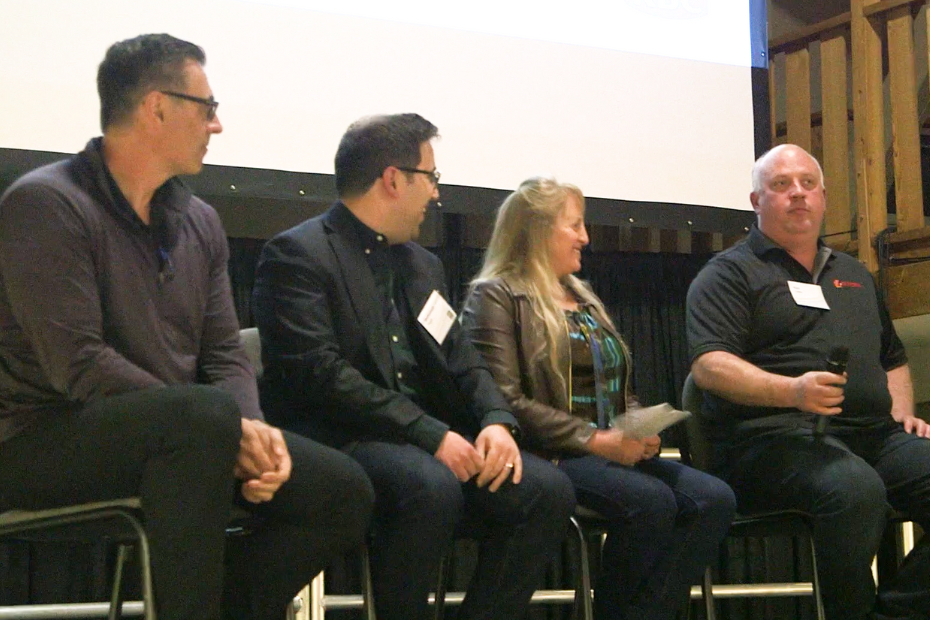The Next Green Revolution in Regina, Sask.: Should farmers be doing a better job of telling and selling their story?

Published August 16, 2023 • 5 Min Read
Sustainable agriculture is something farmers have supported for decades, even hundreds of years. The biggest worry is that the current policies coming out of Ottawa in the name of getting to net-zero are starting to hamper farmers’ ability to accomplish their most important job: growing food to feed the nation.
This was a sentiment that was echoed by every panelist in one way or another at RBC’s recent The Next Green Revolution event in Regina, Sask. Those folks included:
- Kristjan Hebert, President, Hebert Grain Ventures
- Alison Joutsi, Vice President, ESG and Sustainability, BDO Canada
- Marty Seymour, Chief Operating Officer, Carbon RX
- Dr. Steven Webb, Executive Director and Chief Executive Officer, Global Institute for Food Security (GIFS)
Their biggest message to policymakers is that farmers want to work with them to craft policy that will create meaningful change on farms across the country. What’s needed is an increase in communication between both parties.
“It’s important we do a good job telling our story and then being relentless on how we innovate to make our industry better,” Marty started off by saying. As a former banker, he’s spent years chatting with farmers about measuring and managing their inputs. “We’re building the airplane as we fly it when it comes to [getting to net-zero]… if anyone tells you they’ve got it figured out, they don’t.”
He added it’s critical that everyone works together to set and achieve carbon goals, and that it’s up to farmers to take the lead on outlining what sustainable agriculture means to them. “We [can sit] back and wait [for] someone to tell us what to do, or we can take control of the narrative now and define what [sustainable agriculture is] and play big in this space.”
Correcting the current misconceptions that agriculture is the source of Canada’s carbon problem is also critical, as Steven noted.
“Agriculture is not the problem… agriculture is the solution,” he said. “I think we need to do a good job of telling our story and then thinking about how we innovate more to make it even better.”
He pointed to current data from his work with GIFS about the lifecycle of carbon as a good example of why correcting misconceptions is so important.
“One of the things that jumps out at you right away is [Canadian farmers have less carbon output]. We have 140 per cent less carbon output in Western Canadian farming, Saskatchewan farming, compared to our nearest competitor, which is [the United States]. We’re over 200 per cent better than the Europeans,” he noted. “Right now, Canada is in [an] enviable position of being the best, but we’re not very good at telling the story.”
Part of the reason those in the agriculture industry struggle with “selling” the work they do is because, as Kristjan suggested, there’s no one way to market what’s being done.
“We’re so fractured… there are so many different farmers, so many different grower groups… if you’re an agriculture minister in Canada, you have 150 groups lobbying you and we wonder why the message isn’t clear,” he said.
He added the message most government officials and consumers receive about farmers isn’t that they’re growing food to feed people, it’s that they use all sorts of toxic, bad-for-the-world things to manage crops.
“If you weren’t a farmer, and you [heard] the terms fertilizer, pesticide, herbicide, genetically modified, do [they] put skull and crossbones in your head or [do they create a visual of] the best food you’ve ever [eaten] in your head?” he asked the audience.
“If [our] story [had] started [with] fertilizer is just food and every plant I grow is a kid and I’m just feeding it calories, or herbicides are just prescription medication… and fungicide is just a multivitamin to make [our kids] healthier… it’s a whole different story to the consumer and the government… but that’s not the story we’ve told… we have a lot of history [to reframe] to try and pivot the Titanic.”
What this has led to, Kristjan went on to note, is a system where the government sometimes leaves farmers out of critical policy decision conversations.
“[Policymaking] is government-led, which then [leads to] the compliance market around the world pushing [bad policies] down through multinational companies,” he noted.
Alison echoed Kristjan’s thoughts by saying farmers need to work with partners – like RBC or BDO – to make sure their story gets told to the right people.
“All of us [farmers] are already doing a lot of really great sustainable [agriculture] practices. But if that’s not being told to the right individuals, it’s hard to move forward in a collaborative way,” she noted. “Having spoken with producers, there are real barriers to integrating [sustainable agriculture practices] into their operations. There’s uncertainty of economic costs, the speed of regulatory pressure… so in order to put together a meaningful [sustainable agriculture] strategy, [policies] really need to be collaborative, [they] need to be cost effective, [they] need to be practical, and [they] need to take into consideration all of us in this room and everyone across the country.”
To learn more about RBC’s recent report The Next Green Revolution, click here.
You can also hear what agriculture industry experts and farmers at our other events had to say about the future of farming when it comes to sustainable agriculture.
While information presented is believed to be factual and current, its accuracy is not guaranteed and it should not be regarded as a complete analysis of the subject matter discussed. All expressions of opinion reflect the judgment of the author(s) as of the date of publication and are subject to change. No endorsement of any third parties or their advice, opinions, information, products or services is expressly given or implied by Royal Bank of Canada or its affiliates.
This article is intended as general information only and is not to be relied upon as constituting legal, financial or other professional advice. A professional advisor should be consulted regarding your specific situation. Information presented is believed to be factual and up-to-date but we do not guarantee its accuracy and it should not be regarded as a complete analysis of the subjects discussed. All expressions of opinion reflect the judgment of the authors as of the date of publication and are subject to change. No endorsement of any third parties or their advice, opinions, information, products or services is expressly given or implied by Royal Bank of Canada or any of its affiliates.
Share This Article





